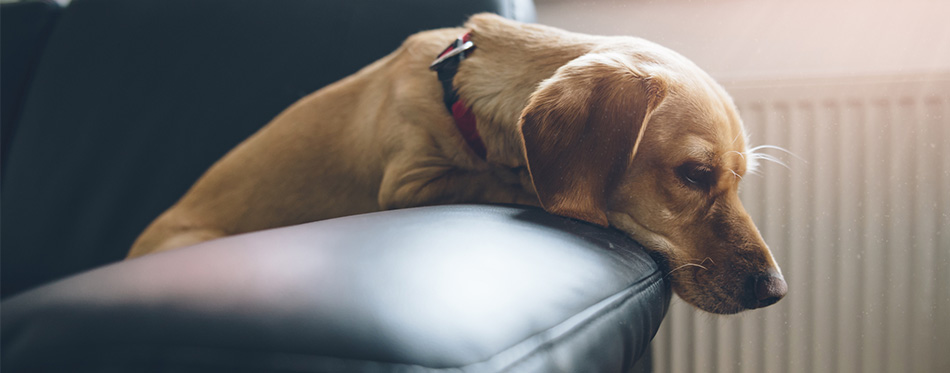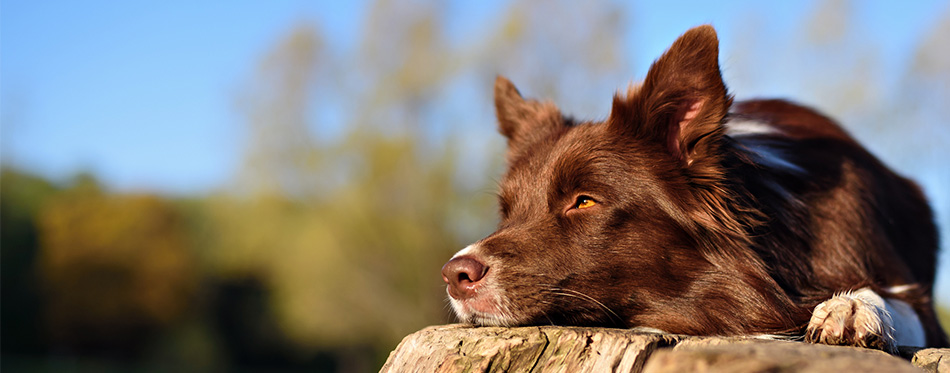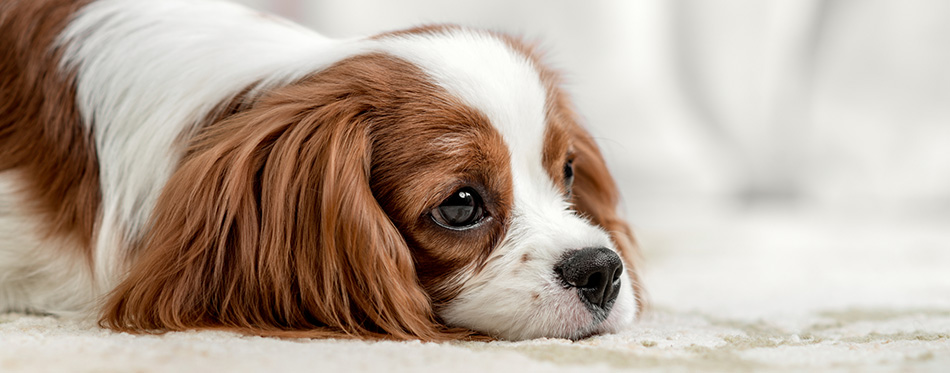Unfortunately, throughout life we are naturally greeted with grief in many forms. Ranging from severe disappointment (for example, a job you had depending on falling through, whether it was yours to begin with, or not), to losing a close, loved one. We can see from this that we don’t solely grieve when we love someone we care for, yet this is oftentimes the only point at which someone will acknowledge our suffering. Similarly, dogs can show signs of depression due to many reasons, though of course- dogs being dogs- they are most deeply affected when they have suffered from separation of one of their “pack”.
You may notice some of the darker aspects of loss becoming more prevalent when they have been taken away from their home- however horrible their past at that home may have been, when leaving their family as pups (though, thankfully, this is very rare) and, of course, when they have lost an elderly owner or family member in general. While the major factor in the grieving process in dogs (as with us all) is time, we hope that this article can help shed some light on the symptoms of a grieving dog and how to cope with a dog suffering through grief.

Signs of Grief in Dogs
While most people understand the typical reaction to grief in humans- that is, the 5 stages of grief- it’s difficult to gauge the grief reaction in dogs. They may very well have their own stages that lead to moving on from grief, yet because we cannot communicate with our pups in words, it’s difficult to know where your dog’s head is it, in relation to the grieving process. That said, there are some signs that have been collected through the years in the form of studies and anecdotal evidence that allows us to share some of your dog’s grieving symptoms. These include:
This can be one of the first signs you’ll notice since dogs are usually very food-oriented. If they aren’t as keen on their dinner as usual or seem disinterested in dog treats, it could be due to your dog suffering from grief.
- Vocalizations
These aren’t necessarily limited to barking. They can also include whimpering for seemingly no reason, whining, howling or even sighing more than usual.
- Behavioral changes
This is a rather broad term that can encompass a myriad of things. Most notably, you would likely spot your dog suffering from separation anxiety (whereas they were previously fine with being left alone for short periods), lethargy in an otherwise active dog, increased activity in a usually more laid-back canine and “acting up”. This can mean either a more snappy dog that may growl more than usual, chewing on items it knows are off-limits or similar habits that a “bad dog” might suffer from.
- Accidents around the house
This includes defecating and urinating (despite your dog previously being house-trained) purposely as well as nervously, or accidentally.
Naturally, your first port of call should always be the vet, in case these signs are simply coincidental- it’s always better to be safe than sorry, and prevention is better than a cure when you spot symptoms like this, which can also indicate many physical issues.
Related Post: Dog Training Books
Does CBD Help With Grief in Dogs?
While CBD has many benefits, it is not known whether it can positively affect dogs who are suffering from grief. With that in mind, CBD in many forms has been shown to positively affect dogs in other areas. As such, it is possible that using CBD with your grieving dog can help manage some of the symptoms of grief, including anxiety, which is one of the biggest signs of grief in dogs.
As well as this, using CBD oil on your dog’s coat is a great excuse for petting and taking care of your pet. Rub a little oil over your dogs coat while brushing him or her and, not only will you notice a shinier, healthier coat of fur- you’ll also be bonding with them, which can help reduce their anxiety levels and help them to feel more secure in their home with you.

Our Tips to Help Your Dog Deal With Grief
- Tip 1- Be patient
While it can be hard not to lose your temper, when you return from work to see your home destroyed and your dog’s poo all over the floor, remember that he or she isn’t doing this to annoy you or to create tension in the home. An anxious dog is much more likely to do these things by way of a coping mechanism and they are unlikely to respond to anger. Be patient with your pup and accept that this is only temporary.
- Tip 2- Maintain their routine
Dogs are creatures of habit- it’s why they wait at the door for you to come home at the right time, despite not being able to read a clock, it’s how they know which direction it is to the local park and it’s how they will cope with depression and grief. If your dog has recently lost someone close to them, try to keep to their previous routine as much as possible, if you know it. If you don’t, it’s a good time to start implementing one of your own.
Having a routine helps your dog keep a sense of time while allowing them to focus on what’s next during the day. Just like us humans, it can be massively helpful to keep to one, small goal at a time and having a routine can assist in that goal, each day.
- Tip 3- Praise them
Praising good behavior will let them know that they are still valued and appreciated, as well as letting them know that they are being a very good dog. It can hurt your soul to see your dog waiting for somebody that isn’t coming home but try not to fuss your dog when this happens- they can see it as them being praised for waiting, and they will continue to do so.
You should also be ignoring the bad behavior (as mentioned above), as shouting or scolding them for behaving a particular way during this time can lead to massively increased anxiety. This is especially true if your dog is trying to discover their new role in the household, which can happen if the loss has come from another pet.
- Tip 4- Take care of your dog
It might seem obvious but when you’re worrying over their mental wellbeing, it’s easy for their physical wellbeing to fall into the background. If your dog isn’t eating, sleeping or is acting erratically for more than 24hours, it’s time to take them in to the vet. Your local vet may end up prescribing medication which will increase their drowsiness, need to eat etc. so do be sure to keep an eye on them after the check-up, to be sure they don’t accidentally hurt themselves.
- Tip 5- Try some holistic therapies
There are a couple of well-known choices out there that can really help out with your dog’s grieving process, without having to used prescribed medication. For example, using pheromones is known to improve your dog’s wellbeing, while we’ve already mentioned the benefits of using CBD oils and treats (above). Utilizing the art of massage is another proven method to help calm an anxious dog and helping them to sleep.
Meanwhile, one of the biggest therapies out there at the moment includes the use of hydro-pools. These can be exceptionally helpful if you have an older dog, whose legs are stiff, or if they’re suffering from arthritis. These help to keep them active and- we all know- exercise is a great way of increasing endorphins and serotonin, helping your dog manage his or her grief.
Related Post: Dog Agility Tunnels

Final Thoughts
While it’s only natural for you to want to fuss your dog and cry together- which of course is all part of the natural healing process- it’s best to try to stay upbeat around a grieving dog. Since they pick up on our emotions, our being down and depressed is likely to increase a grieving dog’s symptoms tenfold. For both of your sakes, it’s a good idea to try to stick the ideas above.
Of course, as mentioned earlier, the only real healing comes with time and a slow acceptance of what has happened. Know that both you and your dog will get through this, and you and your best friend will regain the happiness you had before suffering from your loss.

